Sergio Fajardo after announcing his presidential bid: "I'm going to win by breaking the polarization."

After formalizing his presidential bid—his third in a row—former mayor and governor Sergio Fajardo spoke with EL TIEMPO about his intention to run for the Casa de Nariño. He insists that, after the administrations of Iván Duque and Gustavo Petro, the center's time has come.
" I have the same conviction and more energy than I did 25 and a half years ago ," he assures. Regarding potential alliances, he notes that the time will come to think and talk about that at the end of the year, but that for now his focus is on his own campaign.
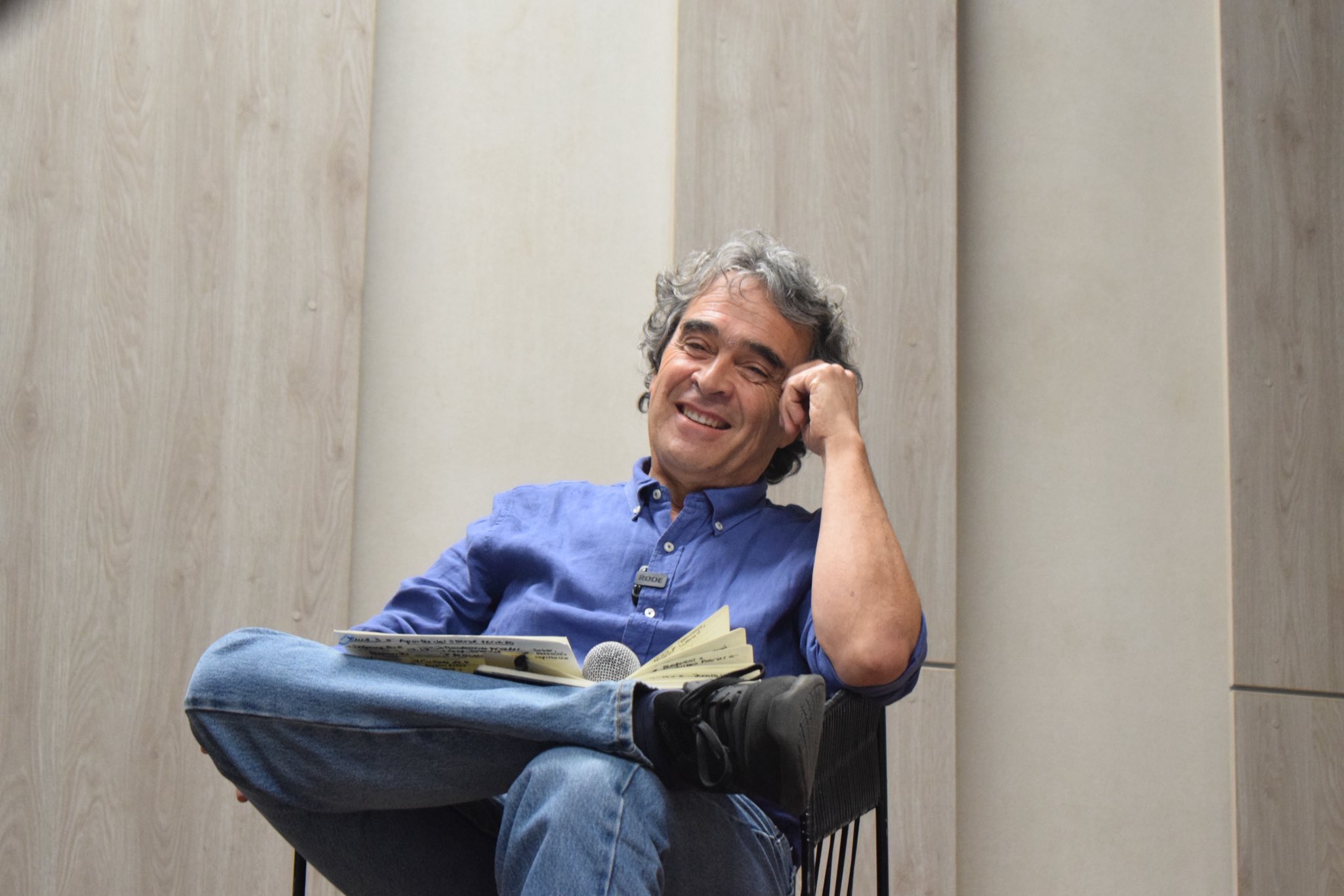
Sergio Fajardo acknowledges that he failed in 2022, but is convinced that it's time to win. Photo: Sergio Fajardo Press
First, I must continue to reiterate and hope that life gives Miguel Uribe the opportunity to recover and be in politics. We must support his family. I met with Miguel Uribe about four months ago. Undoubtedly, we have differences and disagreements in our political thinking, but he is a serious, polite, respectful, deeply political person. He is a good person. The attack creates uncertainty about what will happen , if something like this could happen again, what is behind all this. I have been abroad, on the ground, and that requires stronger protection for those of us campaigning.
The country is waiting for the first-instance ruling in the case of former President Álvaro Uribe, which will be announced this Monday. How will the decision, whatever it may be, impact the campaign and national polarization? I don't want to speculate about that. I've been subjected to speculation as part of my political career. I've always reiterated, and I continue to reiterate, that every person has the right to a fair, impartial trial, to be afforded the necessary guarantees. That's what I ask for everyone and for myself. I hope they give him every guarantee, that the trial is fair.
President Gustavo Petro and his ministers have begun to say they have no confidence in the 2026 elections, questioning the transparency of the Registry Office. Is there reason for the government to distrust the Registry Office? 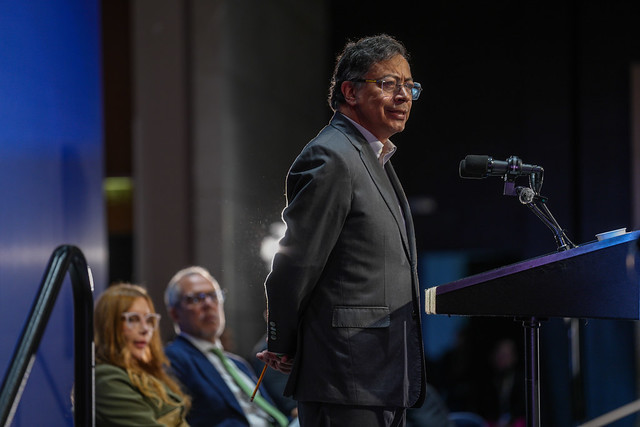
President Gustavo Petro asserted that congressmen cannot say "Petro out." Photo: Office of the President
There is no reason to distrust the work of the Registry. The Registrar has elevated the discussion and handled very well what the President has done, which is unworthy of the President, which is dangerous coming from the President. The President is responsible for planting a bombshell in the institutional framework every day. That institutional framework is strong, but the damage he does with the suspicion of casting doubt is very serious. The President of Colombia, as I will be next year, must ensure that the rulings of the institutions are respected, that the institutions are protected, that the separation of powers is respected, and provide every guarantee so that we have democracy in Colombia.
Do you think there's even the slightest possibility that President Petro won't call elections? I don't think so, but it's part of daily conversation. I get asked that question every day in different circles. The question is legitimate because you listen to Mr. Alfredo Saade, the way he speaks, what he says, as one of the three people leading the country. President Petro, Minister Armando Benedetti, and Saade are leading Colombia today . Do me a favor, the trio leading the destiny of our country, to put it quite solemnly. President Petro stopped governing a long time ago; he's now in politics.
This is your third time running for president. Why do you think you can win this time? 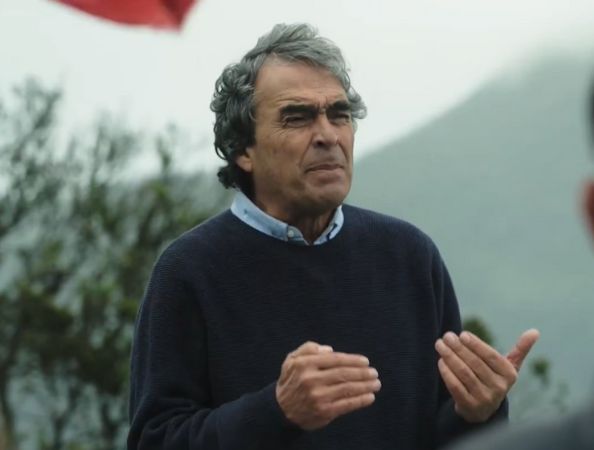
Sergio Fajardo promises a different candidacy. Photo: X@sergio_fajardo
I interpret the sentiment of Colombia today. That's why we must understand the journey, understand why we should take the third opportunity to participate in politics. Twenty-five years ago, with a group of people in my city, Medellín, we made the decision to participate in politics outside of traditional structures. We built a civic movement, changed the face of politics, entered elections, came to power, and from that power, transformed Medellín. It's the same spirit I have today, the same conviction about politics. In 2018, almost; in 2022, badly. In 2026, life puts us at the forefront of having demonstrated coherence, consistency. We have the capacity to rally a Colombia amidst fear, anger, and uncertainty. It needs a leader like me, capable of rallying, building, and overcoming polarization.
You insist you're the man capable of governing with the best of the right and the left. How are these advances in bringing together those sectors to join forces? Each stage has different moments. Mine is different from everyone else's, for basic reasons. This is my third. My campaign goes through different stages. The first was successful, as we were able to regain our footing. After the electoral failure of 2022, we needed to regain our footing; we're ahead in the polls. We closed that first stage by presenting our candidacy on July 20th, in a different way. I'm surprised by the response we've had since that video. Right now, we're moving forward, and that means running a different campaign, not looking sideways.
Dignity and Commitment, New Liberalism, and Mira announced a joint front a few weeks ago for the congressional elections. Is it possible they'll join forces for the presidential elections? That agreement doesn't include that condition. That doesn't mean it can't be done, but it doesn't commit any party to supporting a particular presidential candidate.
How do you navigate a universe of more than 70 pre-candidates? How do you interpret this proliferation of presidential candidates? 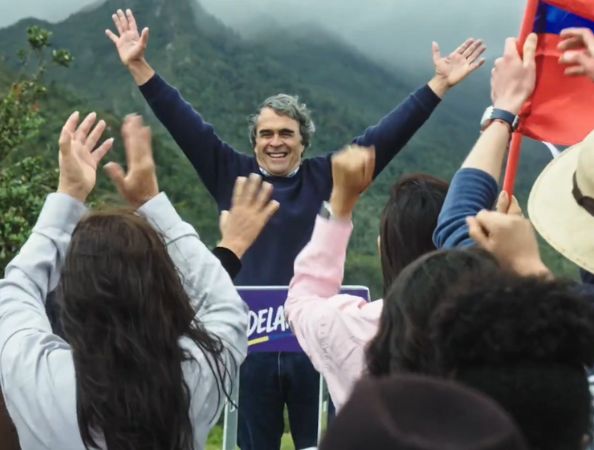
Sergio Fajardo wants to restore the country's security. Photo: X@sergio_fajardo
It's very difficult to campaign for many people in that context. There are 40 or more people collecting signatures. I've collected signatures twice. I've walked to Colombia, and we've collected signatures, but without paying, deploying a team of volunteers across Colombia, which is a great strength we have. Collecting signatures is exciting and very difficult. There are candidates who have never been on the street, who haven't had a conversation beyond two or three superficial things. There are also candidates who believe that the one who shouts the loudest guarantees security, that you have to shout and insult to show that you're strong, brave. All of that is part of that condition. So, this campaign is very difficult, and it will be very difficult for many people.
Do you see a future for a centrist interparty referendum? Would you join? In December, they interview me again and ask me how things are going and what I think. I answer them. I don't look sideways, I don't get caught up in arguments. Right now, I'm moving forward without looking sideways or getting distracted. In politics, you're attacked from both sides, and many want you to confront the other side. I don't waste time on that; I know where we're going, and we're going well.
Has it been successful for you to avoid this confrontational tone, which generally harms political debate? Mayor of Medellín, governor of Antioquia, starting from scratch, without any political patrons, on foot, without buying a vote, almost president of Colombia, and look how we're doing in the polls. That's awesome. Of course it's yielded results; now I have to learn, fine-tune, life teaches us lessons. I have the same conviction and more energy than I did 25 and a half years ago.
Are those who bet on confrontation at a disadvantage? 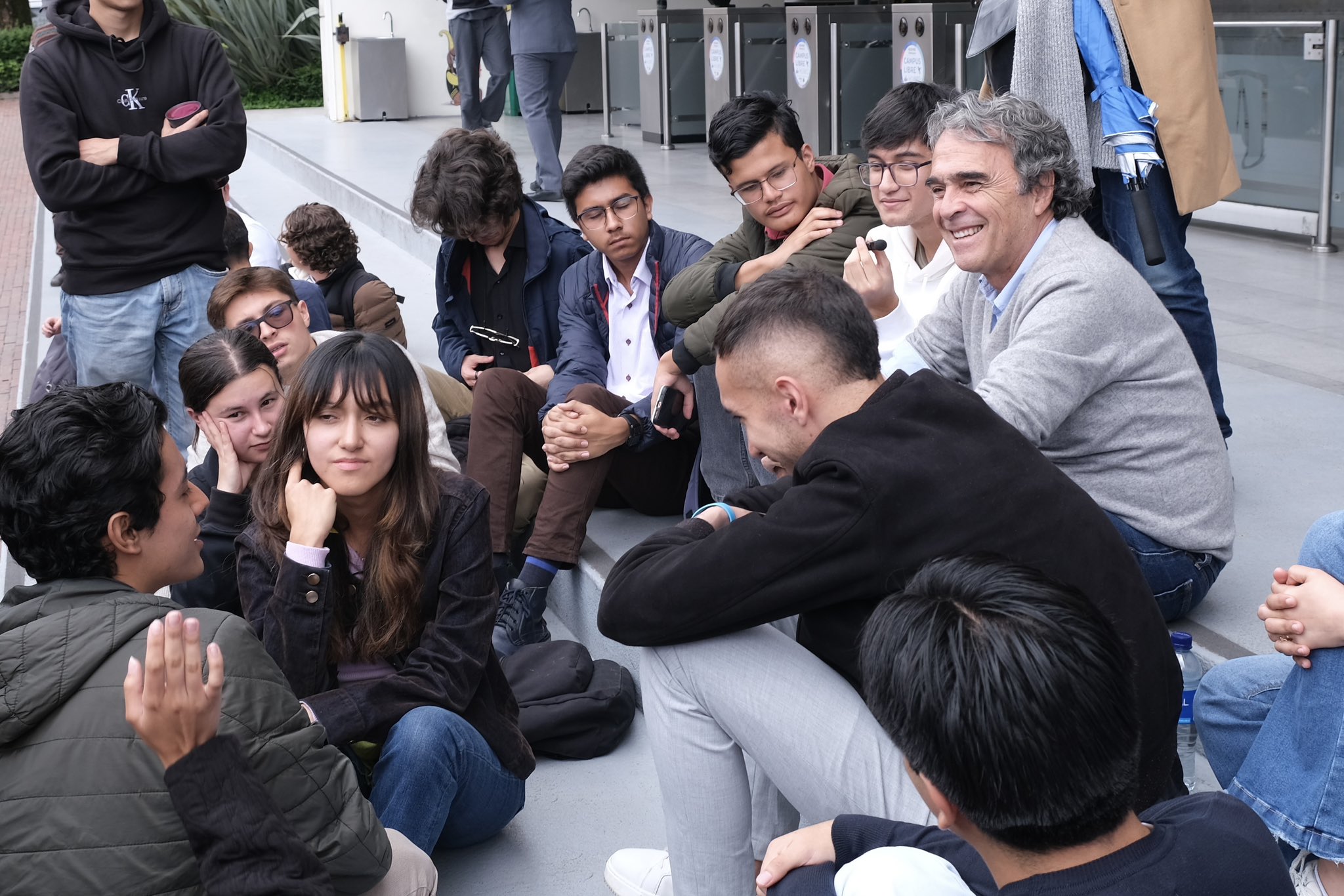
Sergio Fajardo with young people. Photo: Sergio Fajardo Press
With me, they lose. They'll see what they do, who they attack, but that speaks volumes. It's a world of polarization, and that's what some people want. Polarization means being friend or foe, and whoever is an enemy enters the language of war, and we have to attack, where anything goes. I don't believe in that; I've never believed in it, nor will I. I think that's the worst thing that can happen to Colombia, and we already see how things are in this country. Nothing good comes out of it; corruption and insecurity grow. I'm going to win by breaking the polarization that has been created in Colombia. Colombians have seen enough. I'm not going to insult anyone. I'm very old, I'm a decent person, and I'm going to die a decent one. I may have made mistakes once or twice, but no more. That's what Colombia needs.
What do you say to those who constantly discredit the center, both from the left and the right? Don't worry about me, and on August 7th I'll invite you to Sergio Fajardo's inauguration as president.
Some voices, including experts, insist that you and Claudia López must reach agreements if you want to have real options between the extremes. Is that door open on your part? We talked in December. I don't talk about her. I always try to be respectful both in private and in public; I don't talk about Claudia, neither one nor the other. No one can quote me saying those things.
But how do you perceive the atmosphere, in general, after talking with different leaders? 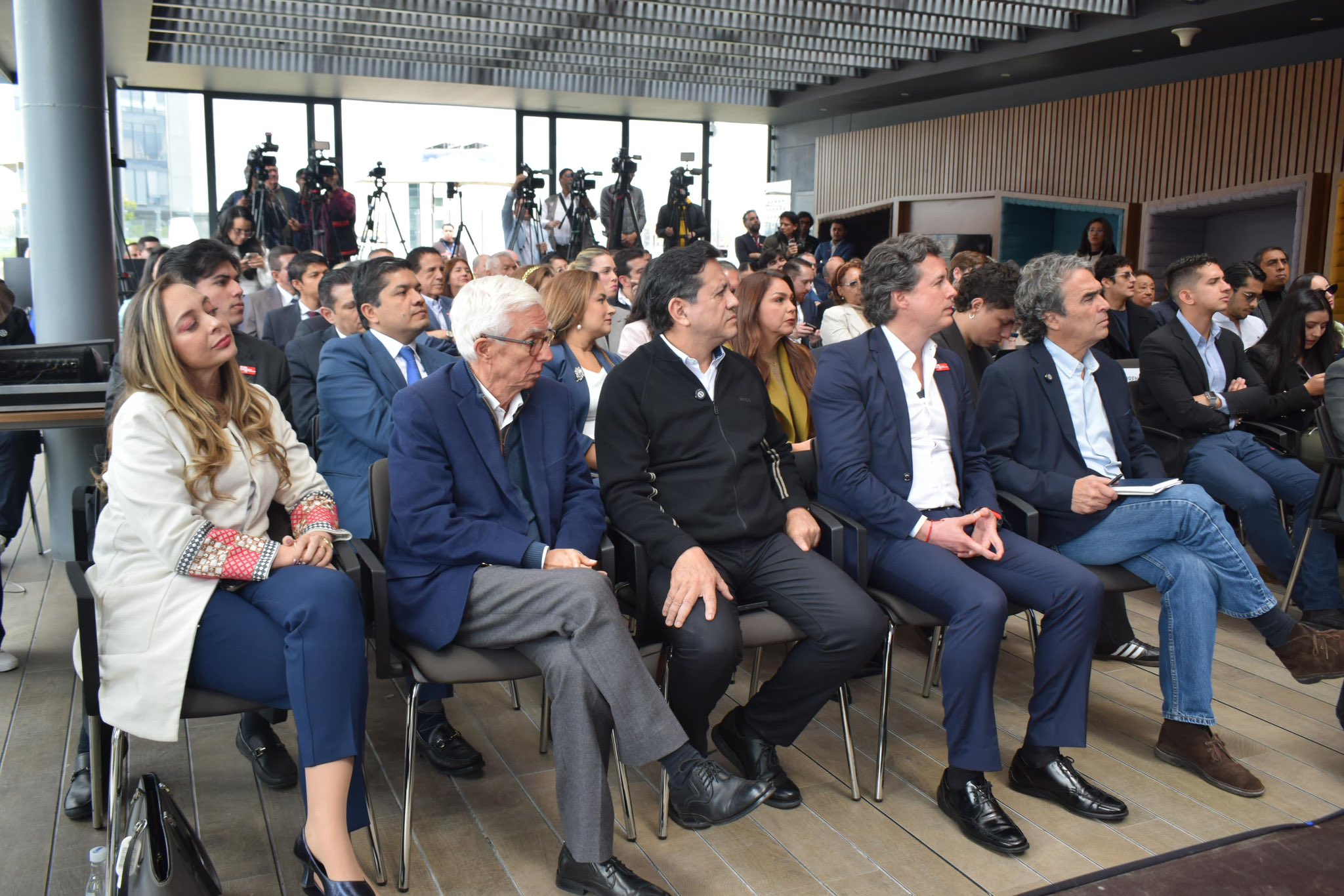
Sergio Fajardo and Juan Manuel Galán are running for president. Photo: Social media
I've spoken with very different people, and I hold individual meetings because in politics, when you bring more than two politicians together at once, it becomes a show. But when you're talking to a person, you can do it differently, knowing if they're pretending, calculating, or if the connection is genuine. That's how I've been able to meet many people. With the people I've spoken with, it's always been within a framework of respect, and they enrich me. That's why I'm able to say that you can bring together people from the left, the center, and the right. There are valuable people in all walks of life. Are we going to continue with this insult-mongering to stand out? That's not what we need.
The arrival of Catalan advisor Antoni Gutiérrez-Rubí, who worked on Gustavo Petro's campaign, has been a source of discussion. How is this strategist helping you, and what's your response to these criticisms? Our campaign is clean, transparent, and constructive. I sought out Mr. Antoni Gutiérrez-Rubí, sat down with him, and chose him because I think he's a very good candidate. The campaign is a reflection of who I am, not what a strategist might or might not want. That's a silly attempt to attract attention, because strategists work with several people. I chose him, and I'm responsible for all the people I choose. Not a single person who has worked with me has been convicted of corruption, and this happens because I choose them, I lead them, and I represent them. It doesn't happen behind my back. I don't bring anyone in to tell me how I should be; the principles are already there, and the campaign is spectacular. It's better to provoke envy than to feel it, and the gentleman is impeccable in his work.
What would you expect from this last year of government? What do you ask of President Petro? Let him govern with transparency, rigor, and with Colombia in mind. He's going to leave, and so far, it's been a bad administration. Unfortunately, he's no longer in power. I can ask you to be responsible toward Colombia, Mr. President Petro, but I don't expect anything.
MATEO GARCÍA AND JUAN PABLO PENAGOS
Deputy Editor and Political Writer
eltiempo





